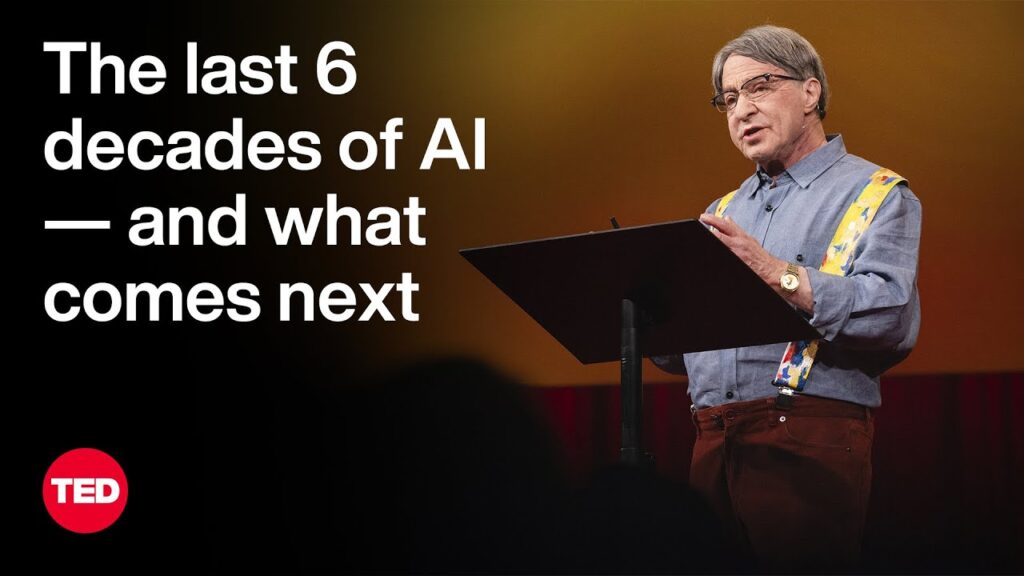Ray Kurzweil, a pioneering figure in artificial intelligence (AI), has been at the forefront of this field for over six decades. His TED Talk delves into the remarkable journey of AI and its future potential. This blog post captures Kurzweil’s key points, offering actionable insights on how AI will shape our lives and how you can prepare for these transformative changes.
Historical Perspective on AI
In 1956, the term “artificial intelligence” was coined at a Dartmouth conference, marking the birth of a revolutionary field. Early AI researchers, like Marvin Minsky, were wildly optimistic, believing human-level AI would be achieved in a few decades. Kurzweil, however, anticipated a longer timeline but still within our lifetimes. This historical context is crucial for understanding the skepticism and gradual acceptance of AI’s transformative potential.
The Evolution of AI Tools
Humans are unique in their ability to create tools that enhance intelligence. Kurzweil emphasizes that unlike other species, humans can develop advanced tools thanks to our brains and opposable thumbs. From primitive implements to today’s sophisticated AI systems like GPT-4, these advancements have significantly boosted our cognitive abilities. Recognizing this evolution is essential for understanding how AI can further augment our intellectual and practical skills.
Exponential Growth in Computing Power
Kurzweil has meticulously tracked the exponential growth of computing power for decades. Starting from a mere 0.000007 calculations per second per dollar in 1939 to today’s half a trillion calculations per second, this growth trajectory has enabled significant AI breakthroughs. This exponential increase explains the rapid advancements in AI capabilities, such as the development of highly effective large language models within just a few years. Staying informed about this trend is essential for anticipating future AI developments.
Predictions for AGI and the Singularity
Kurzweil predicts that artificial general intelligence (AGI) will be achieved by 2029, a forecast that is increasingly accepted within the AI community. AGI will revolutionize various aspects of life, from healthcare to education, by significantly enhancing innovation and problem-solving capabilities. The concept of the singularity, where AI surpasses human intelligence, is projected for 2045. This milestone promises profound improvements in creativity, intelligence, and even human lifespan. Preparing for these changes involves understanding and embracing the potential of AI to transform society fundamentally.
Practical Implications of AI Advancements
AI’s impact is already evident in fields like medicine. Kurzweil highlights how AI enabled Moderna to develop its COVID-19 vaccine in just two days, demonstrating AI’s potential to accelerate medical breakthroughs. Future AI applications will continue to enhance healthcare efficiency and effectiveness, leading to faster disease cures and improved patient outcomes. Additionally, AI will help address resource limitations by optimizing energy use and other critical resources, ensuring sustainable development. Understanding these practical implications can help individuals and organizations leverage AI for better health and sustainability outcomes.
Final Thoughts
Ray Kurzweil’s TED Talk provides valuable insights into the past, present, and future of artificial intelligence. From its early days of skepticism to its current rapid advancements, AI is poised to revolutionize every aspect of our lives. By understanding these trends and preparing for the upcoming changes, we can harness the power of AI to enhance our capabilities and improve our quality of life. Embracing AI innovations and staying informed about developments will be crucial as we navigate this transformative era.
You Might Also Like:
- Discover Your Next Great Read: New York Times Best-Selling Books
- 7 Must-Read Books Before Turning 25
- Crack the Code to Wealth: “The Algebra of Wealth” by Scott Galloway
- Discovering True Wealth in The Book ‘The Wealth Money Cannot Buy’ by Robin Sharma (Book Summary)
- Book Summary: Just the Good Stuff by Jim VandeHei – Redefining Success
- 7 Must-Read Books for Money Management
